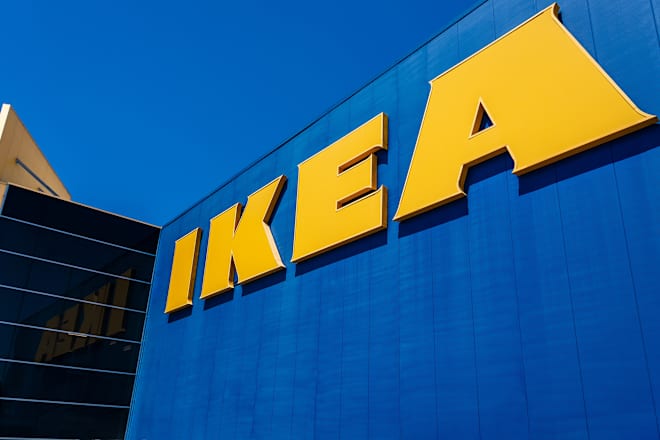Perfect Headline: ‘Meta Warns That It Will Fire Leakers in Leaked Memo’
Alex Heath, writing at The Verge: Moments after Meta CEO Mark Zuckerberg’s all-hands comments to employees were widely leaked, a company executive warned in an internal memo that leakers will be fired. “We take leaks seriously and will take action,” Meta’s chief information security officer, Guy Rosen, said in an internal memo I’ve seen. [...] Rosen goes on to say that Meta “will take appropriate action, including termination” if it identifies leakers and that “we recently terminated relationships with employees who leaked confidential company information inappropriately and exfiltrated sensitive documents.” During today’s all-hands meeting, Zuckerberg told employees he would no longer be as transparent due to leaks. “We try to be really open and then everything I say leaks,” he said. “It sucks.” Just about every well-run and successful company I’m aware of fires leakers. Or really it’s the opposite: it’s difficult to succeed as a company with no institutional trust between employees. But company cultures are infused by the personalities of their founders. Meta employees have no scruples surrounding the privacy of internal communications because, by definition, they’re the sort of people who never saw any problem with Meta’s complete lack of regard for such things. So they don’t hesitate to leak what they don’t like. Zuck gets no loyalty because he hired an entire company of people with no convictions other than “winning” or whatever it really is that Meta sees as its central tenet. It’s not fear of getting fired that keeps employees at most companies from leaking. It’s that they find themselves aligned with the company’s mission. They feel like part of a team that they want to see succeed, and they naturally adopt an attitude of being a team player. Team players don’t leak the playbook because they don’t like the coach’s play-calling or how much playing time they’re getting. I’ve never gotten the sense that that sort of attitude exists at Meta. This is a company that bought a popular VPN app (Onavo) and then used it to snoop on users’ encrypted SnapChat traffic. They used it to snoop on users to determine the popularity of WhatsApp before purchasing it. This wasn’t some rogue operation in a corner of the company — it was a core strategic asset that led directly to a $20 billion acquisition. Onavo was just flat-out spyware and Apple kicked it out of the App Store in 2018. For years — years — Meta paid users aged 13–35 up to $20 a month to install a “Facebook Research” app that let Meta study every single thing they did on their phones. An app like that couldn’t be distributed through the App Store, of course, so Meta distributed it by abusing the iOS “enterprise” developer program; when Apple pulled Meta’s enterprise certificate over the fiasco, its employees couldn’t use their own internal apps to buy food or take a company shuttle bus. It would be a wonder if the sort of people who would do stuff like that — or go to work at a company that does things like that — were not incorrigible leakers of embarrassing information and communications. Zuck’s exasperation over the disloyalty of his own employees is like hiring a team of pickpockets and then complaining that sandwiches keep going missing from the gang’s hangout fridge. ★

Alex Heath, writing at The Verge:
Moments after Meta CEO Mark Zuckerberg’s all-hands comments to employees were widely leaked, a company executive warned in an internal memo that leakers will be fired.
“We take leaks seriously and will take action,” Meta’s chief information security officer, Guy Rosen, said in an internal memo I’ve seen. [...] Rosen goes on to say that Meta “will take appropriate action, including termination” if it identifies leakers and that “we recently terminated relationships with employees who leaked confidential company information inappropriately and exfiltrated sensitive documents.”
During today’s all-hands meeting, Zuckerberg told employees he would no longer be as transparent due to leaks. “We try to be really open and then everything I say leaks,” he said. “It sucks.”
Just about every well-run and successful company I’m aware of fires leakers. Or really it’s the opposite: it’s difficult to succeed as a company with no institutional trust between employees. But company cultures are infused by the personalities of their founders. Meta employees have no scruples surrounding the privacy of internal communications because, by definition, they’re the sort of people who never saw any problem with Meta’s complete lack of regard for such things. So they don’t hesitate to leak what they don’t like. Zuck gets no loyalty because he hired an entire company of people with no convictions other than “winning” or whatever it really is that Meta sees as its central tenet.
It’s not fear of getting fired that keeps employees at most companies from leaking. It’s that they find themselves aligned with the company’s mission. They feel like part of a team that they want to see succeed, and they naturally adopt an attitude of being a team player. Team players don’t leak the playbook because they don’t like the coach’s play-calling or how much playing time they’re getting. I’ve never gotten the sense that that sort of attitude exists at Meta.
This is a company that bought a popular VPN app (Onavo) and then used it to snoop on users’ encrypted SnapChat traffic. They used it to snoop on users to determine the popularity of WhatsApp before purchasing it. This wasn’t some rogue operation in a corner of the company — it was a core strategic asset that led directly to a $20 billion acquisition. Onavo was just flat-out spyware and Apple kicked it out of the App Store in 2018. For years — years — Meta paid users aged 13–35 up to $20 a month to install a “Facebook Research” app that let Meta study every single thing they did on their phones. An app like that couldn’t be distributed through the App Store, of course, so Meta distributed it by abusing the iOS “enterprise” developer program; when Apple pulled Meta’s enterprise certificate over the fiasco, its employees couldn’t use their own internal apps to buy food or take a company shuttle bus.
It would be a wonder if the sort of people who would do stuff like that — or go to work at a company that does things like that — were not incorrigible leakers of embarrassing information and communications. Zuck’s exasperation over the disloyalty of his own employees is like hiring a team of pickpockets and then complaining that sandwiches keep going missing from the gang’s hangout fridge.









































![United Lounge Hack: Flyers Are Cooking Up Secret Breakfast Sandwiches—Would You Try It? [Roundup]](https://viewfromthewing.com/wp-content/uploads/2025/01/united-mcmuffin.webp?#)
































